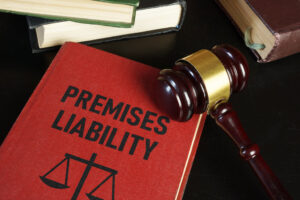 Property ownership in Pennsylvania comes with significant legal responsibilities that extend far beyond basic maintenance and upkeep. When someone gets injured on your property, you may face substantial liability regardless of whether you own a small residential property or operate a large commercial establishment. Understanding Pennsylvania’s premises liability laws helps you protect yourself from costly lawsuits while ensuring the safety of everyone who enters your property.
Property ownership in Pennsylvania comes with significant legal responsibilities that extend far beyond basic maintenance and upkeep. When someone gets injured on your property, you may face substantial liability regardless of whether you own a small residential property or operate a large commercial establishment. Understanding Pennsylvania’s premises liability laws helps you protect yourself from costly lawsuits while ensuring the safety of everyone who enters your property.
Many property owners operate under the mistaken belief that their homeowner’s or business insurance automatically shields them from all liability. However, premises liability law creates specific duties that vary depending on who visits your property and why they are there. At Rubin, Glickman, Steinberg & Gifford, we have represented both injury victims and property owners for over 65 years, giving us unique insight into how Pennsylvania courts evaluate these cases and what property owners can do to minimize their risk.
The Three Categories of Visitors Under Pennsylvania Law
Pennsylvania law categorizes people who enter others’ premises into one of three categories: trespassers, licensees, and invitees. The owner’s duty of care to you and your rights to pursue damages depend heavily on which of these three designations you receive. Understanding these classifications helps property owners know what level of care they must provide to different types of visitors.
Invitees are individuals who enter the property for the benefit of the property owner, such as customers in a store. Property owners owe the highest duty of care to invitees and are required to inspect their property for hazards, make necessary repairs, and provide warnings of any known dangers. This includes regular maintenance, prompt cleanup of spills, adequate lighting, and proactive identification of potential safety issues. For business owners, this means implementing comprehensive safety protocols and training staff to recognize and address hazards quickly.
Duties Owed to Licensees and Protections Against Trespassers
Licensees enter the property for their own purposes with the property owner’s permission, such as social guests. Property owners must warn licensees of known hazards on the property but are not required to inspect for or repair unknown dangers. “In Pennsylvania, failure to post no hunting or no trespassing signs along the boundaries of privately owned property is considered implied permission for anyone to enter the property for hunting and fishing activities and these land entrants are considered licensees and protected as such,” explains Pennsylvania State University.
Property owners have very little duty of care to trespassers. In the 1998 case Rossino v. Kovacs, the Supreme Court of Pennsylvania detailed that “A trespasser may recover for injuries sustained on land only if the possessor of land was guilty of wanton or willful negligence or misconduct.” However, children present an exception this rule. Under the doctrine of attractive nuisance, owners have duty to make their premises reasonably safe for children that might be attracted to the premises, such as putting up a fence around a swimming pool in a neighborhood with children.
Insurance Considerations and Risk Management
Property owners typically have liability insurance that covers accidents occurring on their premises. This insurance may be part of a homeowner’s policy for residential properties or a general liability policy for businesses. However, insurance coverage does not eliminate your duty to maintain safe conditions on your property. Insurance companies may deny claims or cancel policies if they determine that property owners failed to meet basic safety obligations.
Working with insurance professionals to understand your coverage limits and requirements helps ensure adequate protection. Many policies include specific maintenance requirements or safety standards that property owners must follow to maintain coverage. Additionally, implementing strong safety programs may qualify you for lower insurance premiums while reducing your overall liability exposure.
Special Considerations for Different Property Types
Commercial properties face unique challenges due to higher visitor volumes and diverse activities. Businesses are expected to conduct regular inspections of their premises to identify and address potential hazards, and courts may consider accepted industry standards for safety and maintenance when determining negligence. Restaurants must address spill hazards, retail stores need proper lighting and clear walkways, and office buildings require safe stairwells and parking areas.
Residential property owners should pay special attention to common areas, outdoor spaces, and potential attractive nuisances. Swimming pools require particular care, as they present drowning risks to children and slip hazards around pool decks. Property owners must also consider seasonal hazards, such as ice removal in winter and maintaining outdoor lighting year-round.
Rubin, Glickman, Steinberg & Gifford: Protecting Property Owners’ Interests
Understanding and fulfilling your premises liability obligations protects both your visitors and your financial interests. Whether you need guidance on safety protocols, assistance with insurance claims, or representation in liability disputes, our attorneys bring decades of experience in Pennsylvania premises liability law. We help property owners develop comprehensive safety programs while providing strong defense when accidents do occur.
Our recognition as a “Best Law Firm” by U.S. News & World Report every year since 2010 reflects our commitment to protecting our clients’ interests across all types of legal challenges. From routine slip and fall cases to complex multi-party liability disputes, we understand what property owners need to know to minimize their risks and protect their assets. Contact us today at (215) 822-7575 or through our online contact form to discuss your premises liability concerns and learn how we can help you maintain compliance with Pennsylvania law while protecting your property investment.

Rubin, Glickman, Steinberg & Gifford P.C.
Pennsylvania Attorney's
October 1, 2025









